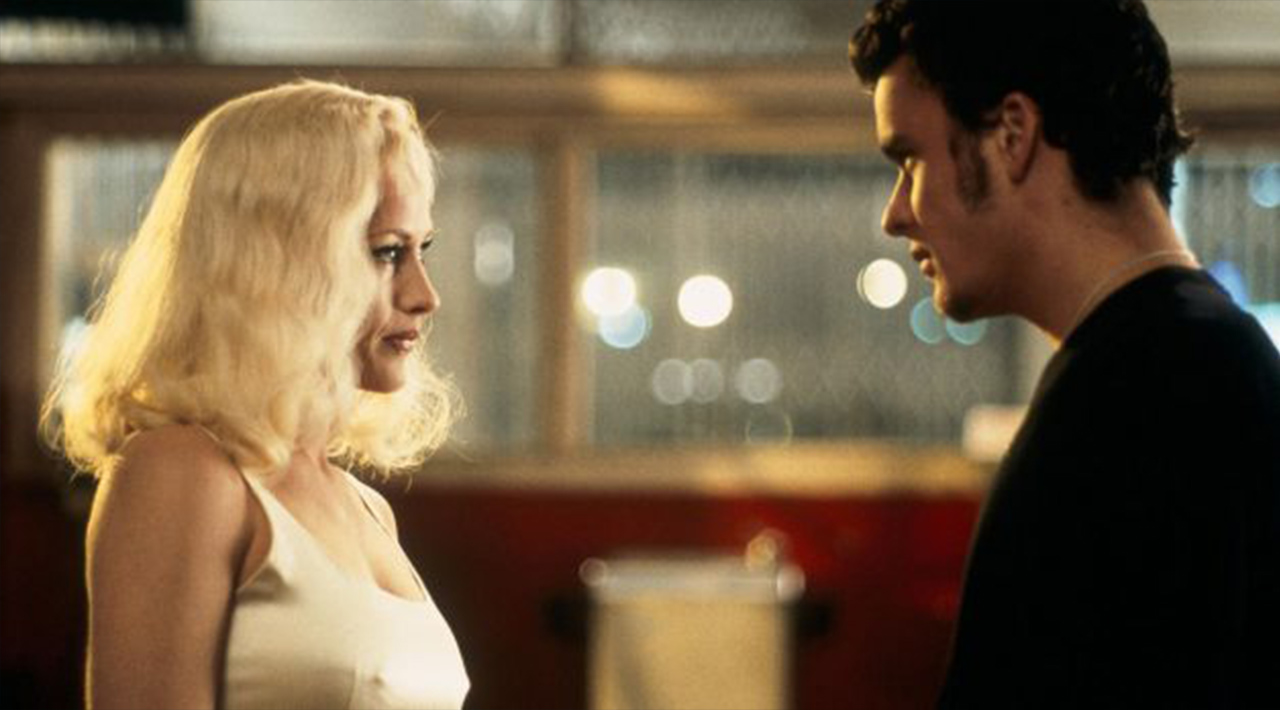David Lynch’s Lost Highway and Feminism

Written by Hami J.
Structural ambiguity and moral ambivalence are two equally important attributes in most of David Lynch’s works. While many of his films resist clear interpretation, we can apply our own criteria to test the potentially implied standpoint of the film. Lynch’s cinema encompasses an infinite number of interpretations, with femininity and its extensive range of implications playing a significant role.
In Lost Highway, power dynamics between the sexes are negotiated through the characters’ dissociation from reality. In the film’s second phase, following Fred’s transformation into Pete, Renee, the archetypal femme fatale who was punished for her infidelity, becomes the self-reliant Alice, manipulating Pete to be her accomplice in a robbery. Arguing that manipulative femininity serves as a case for feminism in Lost Highway ultimately contradicts the purpose of feminism. However, what is noteworthy in Alice’s unscrupulous schemes is her autonomous agency, an achievement that many previous female characters in film history failed to attain. She entices Pete into her plan through her sexuality and need for protection—two recurring elements that subordinate women in a patriarchal society and contribute to the downfall of the femme fatale — thus subverting the very masculine defined notion of a woman.
While the concept of women as cunning and seductive predators, such as sirens, can be traced back to Homer’s Odyssey, what is significant here is that there is no inherent “natural destructive sexuality” that leads to catastrophe. Instead, there is a cultural misconception and a persistent objectification of the female body and psyche. The subplot involving pornography and its subsequent images in the latter third of the movie clearly portrays a society in which women are exploited for economic purposes. the character of Alice represents a woman who repossesses her agency by deliberately stripping herself bare, only in order to reiterate an empowering statement for femininity in the male-dominated diegetic universe of Lost Highway:
“You’ll never have me”

